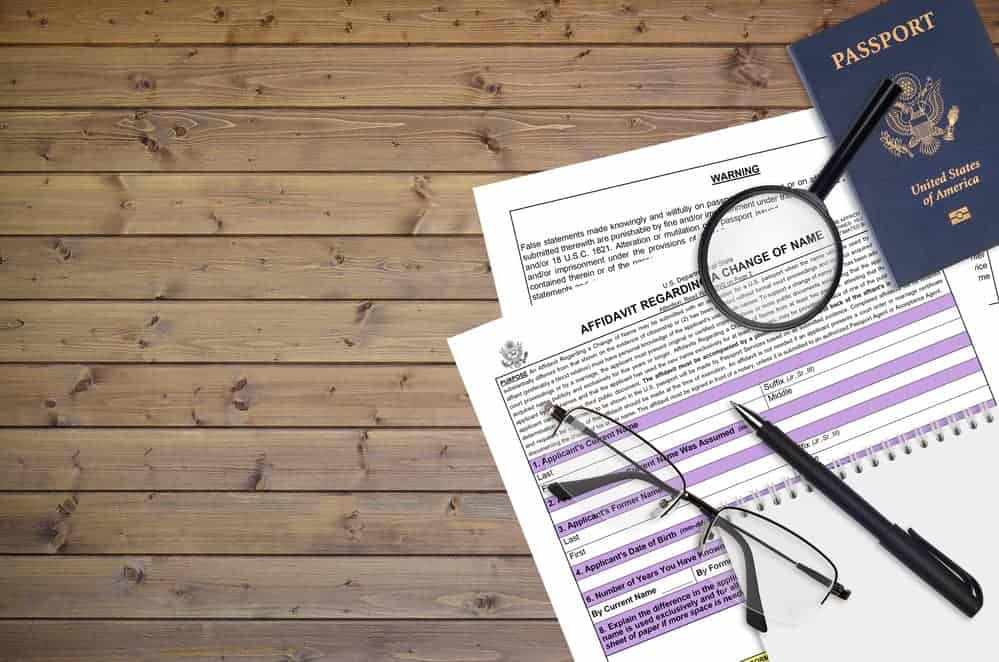Deciding to change one’s name after a divorce can be a deeply personal and important decision, and it can involve legal processes that vary from state to state. In Texas, individuals must follow specific procedures and requirements to successfully revert to a former or different name after a divorce is finalized.
The process in Texas typically begins with the completion of a divorce decree, which contains a provision addressing the name change. This is an essential document, as it legally formalizes the intention to change names and serves as a basis for the process. Additionally, it is crucial to ensure that accurate and consistent information is provided throughout the process to avoid any unnecessary delays or complications.
Once the divorce decree is in place, the next step generally involves updating the name on personal identification documents, such as driver’s licenses, social security cards, and passports. It is advisable to promptly inform relevant institutions such as banks, credit card companies, and other organizations to ensure a smooth transition. Each of these institutions may have its requirements and documentation, so it is essential to be prepared and familiarize oneself with the necessary steps.
Texas Name Change Process After Divorce
Filing for Name Change
In Texas, the process of changing your name after divorce begins during the divorce proceedings. One can request a name change as part of the divorce papers, specifically the Original Petition for a Change of Name. This must be done before the divorce is finalized. It is important to work with an attorney to ensure all required forms are properly completed and submitted to the county clerk’s office.
During the divorce process, it is necessary to provide the court with documents stating the reason for the name change. Typically, a person will seek to restore their maiden or a former last name. As per Texas state law, the courts will consider such requests without any issue if there is no intent to commit fraud or avoid creditors.
Legal Name Change Approval
The name change approval usually occurs during the final divorce hearing. Upon approval, the judge will address the name change request and include the change in the final divorce decree. Obtaining a certified copy of the divorce decree is essential, as this document is the court order that legally changes the person’s name.

Obtaining Updated Identification Documents
Once the name change is approved and the final divorce decree is issued, it is necessary to update identification documents to reflect the new name. This includes obtaining a new driver’s license, Social Security card, and passport. These steps are crucial in ensuring that one’s legal identification matches the name change:
- Update the Social Security card by submitting a certified copy of the final divorce decree to your local Social Security Administration office.
- Visit the Texas Department of Public Safety (DPS) to apply for a new driver’s license with your changed name. Bring your current driver’s license, a certified copy of the divorce decree, and any other required documentation.
- Following the U.S. Department of State website instructions to update your passport, including providing a certified copy of the divorce decree when applying for a new passport.
Remember to update other personal records, such as bank accounts, insurance policies, and employment records, to reflect the name change.
By following these steps and adhering to Texas state laws, changing one’s name after a divorce can be completed efficiently and without unnecessary complications.
Updating Personal Records
After a divorce in Texas, updating personal records is important to reflect the name change if one chooses to do so. This section provides information on how to update various essential records.
Social Security Card
Obtain a certified copy of the divorce decree to update the name on a Social Security card. Then, complete an Application for a Social Security Card (Form SS-5), and provide proof of identity such as a birth certificate or driver’s license. Submit the documents to the nearest Social Security Administration (SSA) office or by mail. The SSA will process the name change request and issue a new card with the updated information.
Driver’s License
Updating the name on a driver’s license requires visiting a local Texas Department of Public Safety office. Bring the following documents:
- Certified copy of the divorce decree
- Current driver’s license
- Proof of social security number
- Proof of citizenship or legal presence in the U.S.
After processing the application, a new driver’s license with the updated name will be provided.
Passport
To update the name on a U.S. passport, different forms are needed depending on the passport’s issue date:
- For passports issued less than a year ago, use Form DS-5504.
- For passports issued more than a year ago, use Form DS-82.
When submitting the appropriate form, include a certified copy of the divorce decree, a new passport photo, and the current passport. A fee might apply if the name change occurred more than a year after issuing the passport.
Bank Accounts
Updating bank account information after a name change requires contacting the bank directly. Generally, they request a certified copy of the divorce decree and may require filling out a specific form. It’s essential to update all account types, including checking, savings, and credit.
Voter Registration
To update the name on voter registration records, complete a new Texas voter registration application form with the updated information. Submit the form to the local Voter Registrar or online at the Texas Secretary of State website. This should be done at least 30 days before an election to ensure accurate records for voting purposes.
Other Considerations
Children’s Name Change
In Texas, changing a child’s last name after divorce may become necessary for various reasons. However, this process typically requires both parents’ consent. The final divorce decree can include the legal name change if the noncustodial parent agrees. If they disagree, a separate petition must be filed, and a trial date must be set for the judge to decide.
Marriage License and Maiden Name
Texas state law allows individuals to revert to their maiden name after a divorce. The marriage license serves as proof of the maiden name before the marriage. Including this request in the divorce petition is essential, as the judge will grant the name change as part of the final divorce decree. People can also keep their married name or adopt a hyphenated last name.
Legal Name Change for Sex Offenders and Convicted Persons
For sex offenders and convicted persons, changing their legal name after divorce might come with more restrictions. State law requires a petitioner with a criminal record to notify their local law enforcement agency before applying for a legal name change. Sex offenders must also request a pardon or complete their probation obligations before requesting a name change.
Legal Resources and Assistance
Navigating the steps to change your name after divorce in Texas might require legal guidance. TexasLawHelp.org is an excellent website that offers numerous legal forms related to divorce and name changes and library resources on the subject. The State Law Library is another helpful resource, providing online access to legal information and assistance finding relevant legal forms.
When considering a name change after divorce in Texas, involving all parties affected, including children, ex-spouse, and creditors, is important. Changing a lease, bank account, or other legal documentation may require proof of marriage and divorce. Awareness of these legal considerations can help smooth the process and ensure compliance with state laws.
Frequently Asked Questions
What are the requirements for changing your name after divorce in Texas?
You need a court order in Texas to change your name after a divorce. This can be obtained through a divorce decree or by filing a separate petition for a name change with the court. It is common for the name change to be included in the divorce decree; however, a separate petition can be filed if necessary.
Is there a specific time frame to change your name after divorce?
There is no specific time frame for changing your name after divorce in Texas. However, it is typically easier and less expensive to include the request for a name change in your original divorce petition. If you wait until after the divorce is finalized, you must file a separate name change petition, which will require additional fees and paperwork.
Do I need a lawyer for a name change after divorce in Texas?
Although having an attorney for a name change after a divorce in Texas is not required, it can be beneficial. A lawyer can help guide you through the process and ensure all necessary forms are accurately completed. Additionally, an attorney can provide insight into any potential issues during the process.
How do I begin the name change process after divorce in Texas?
To begin the name change process after divorce in Texas, follow these steps:
- Determine whether your divorce decree already includes a name change order. If it does, this order will prove your legal name change.
- Obtain certified copies of the divorce decree or name change order. These documents prove your name change and can be obtained from the district clerk’s office that issued the decree/order.
- Update your name on important documents and accounts. This includes updating your name on your driver’s license or identification card, Social Security card, passport, bank accounts, credit cards, insurance policies, and more. You may need to provide certified copies of your divorce decree or name change order to these institutions.
What are the costs associated with a name change after divorce in Texas?
The costs for a name change after divorce in Texas can vary depending on the specific circumstances. If the name change is included in the divorce decree, there may not be any additional costs. If a separate name change petition is required, fees for filing this petition may apply. Furthermore, fees for updating your identification cards and other documents must be considered.



